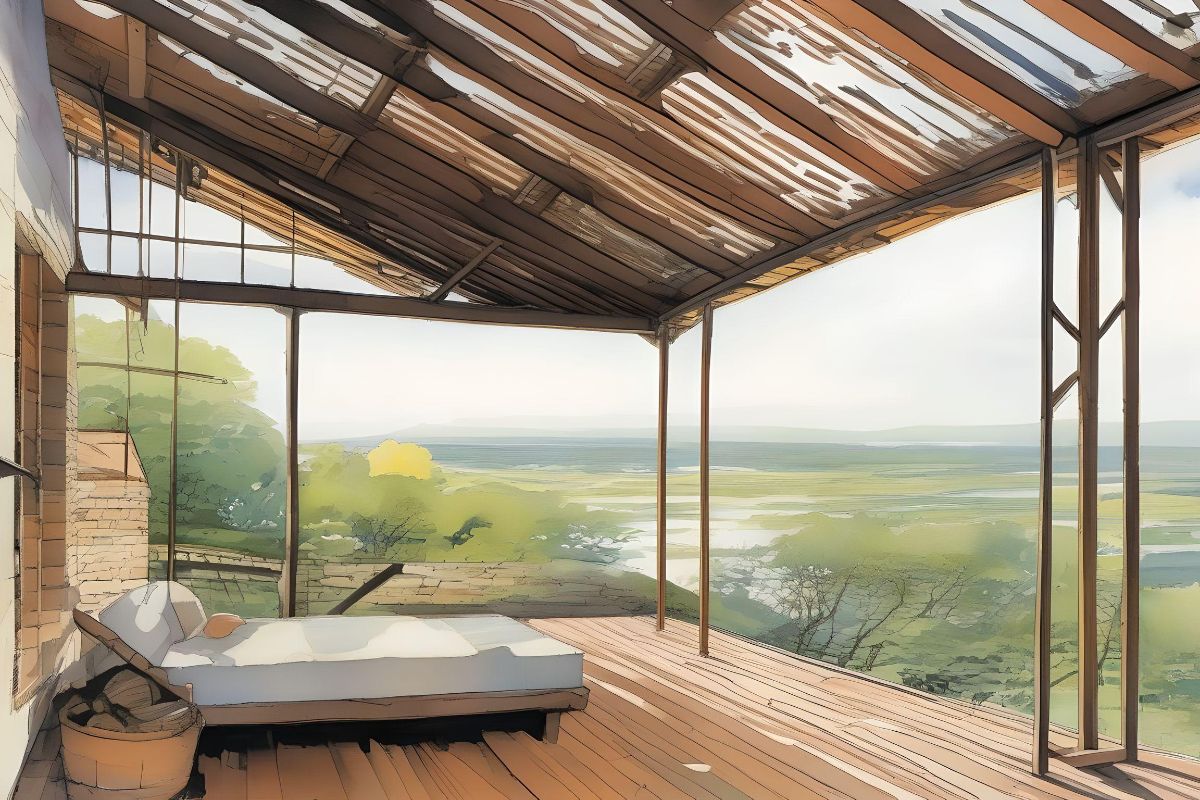
When it comes to roofing, the choice between metal roofing and traditional shingles can feel like a big decision. After all, your roof is one of the most critical aspects of your home—it’s your first line of defense against the elements, and it plays a huge role in your home’s overall aesthetic. So, which option is the best fit for your home? Let’s break it down together. You might be surprised at what suits your needs best!
Durability and Lifespan
First up, let’s talk about how long these roofs actually last. Metal roofs are like the marathon runners of the roofing world. They’re built to go the distance, often lasting between 40 and 70 years. Yep, you read that right. These roofs are tough, shrugging off everything from heavy snow to strong winds with minimal wear and tear.
In contrast, traditional shingles, which usually last about 15 to 30 years, are more like the sprinters—they’re quick and easy to install but may require more frequent replacement. That means while shingles might seem like the easy choice now, you could find yourself replacing them down the road when a metal roof would still be going strong. Think of it as choosing between running a quick 5K versus committing to a marathon—both have their merits, but the long-haul runner tends to be more impressive in the end.
But why does this matter? Well, if you’re planning to stay in your home for the long haul, the longevity of a metal roof could save you from future headaches and extra expenses. An established metal roofing company might suggest that while the upfront cost is higher, you could avoid the hassle of a full roof replacement later on. It’s worth thinking about, isn’t it? Plus, in areas prone to extreme weather, the added durability of metal could mean fewer worries every time a storm rolls in.
Cost Considerations
Now, let’s get to the nitty-gritty: cost. We all know that money doesn’t grow on trees, so this is often the deciding factor for many homeowners. Traditional shingles have the edge here—at least initially. They’re generally cheaper to purchase and install, which makes them an attractive option if you’re on a tight budget. However, don’t be fooled by the lower price tag—shingles might be more affordable upfront, but they often come with hidden costs in the form of more frequent repairs and replacements. That’s something to keep in mind when you’re budgeting for your next roof.
However, metal roofs, while pricier upfront, offer something invaluable—long-term savings. They’re durable, low-maintenance, and could even boost your home’s resale value. Plus, you might find that your energy bills drop a bit, thanks to metal’s reflective properties, which we’ll get into next. So, while you might pay more today, you could end up saving a lot more tomorrow. It’s a classic case of “you get what you pay for.” And let’s be honest, wouldn’t it be nice to set it and forget it, knowing your roof is going to last for decades?
Energy Efficiency and Environmental Impact
Speaking of savings, let’s chat about energy efficiency. If you’ve ever cursed your air conditioning bill during a scorching summer, this section is for you. Metal roofs are basically superheroes when it comes to reflecting solar heat. They can reduce cooling costs by up to 25%, which means your air conditioner doesn’t have to work as hard, and your wallet gets a little relief. On top of that, you might even notice that your home feels cooler overall, as the metal roof reflects the sun’s rays away instead of absorbing them like shingles often do.
And let’s not forget about the environment. Metal roofs are often made from recycled materials and are completely recyclable when they’re done, unlike traditional shingles, which contribute significantly to landfill waste. If you’re someone who’s conscious about your environmental footprint, this might be a big tick in the “pro” column for metal roofing. Plus, since they last so long, you’re also reducing the frequency of roof replacements, which means less material waste over time. It’s a win-win for both your home and the planet.
Aesthetic Appeal and Customization
But what about looks? You don’t want your house to be the neighborhood eyesore, right? Both metal roofing and traditional shingles offer a range of styles to suit different tastes. Metal roofs have come a long way from the basic corrugated panels you might be picturing. These days, they’re available in various colors, styles, and finishes that can mimic the look of shingles, slate, or even wood. So, if you’re aiming for a modern, sleek design, metal roofing has plenty to offer in terms of curb appeal. It’s like choosing a designer outfit for your home—it just looks good.
On the other hand, shingles offer that classic, traditional aesthetic that’s hard to beat if you’re going for a timeless look. With a wide variety of colors and textures, shingles can blend seamlessly with nearly any architectural style. So, it really comes down to what style you prefer. Whether you lean toward the sleek, modern look of metal or the comforting familiarity of shingles, you can’t go wrong either way. And if you’re really torn, why not consider a mix? Some homeowners opt for metal accents, like on porches or over bay windows, paired with a shingle roof to get the best of both worlds.
Installation and Maintenance
Last but not least, let’s talk about installation and upkeep. Installing a traditional shingle roof is pretty straightforward—many roofing contractors can get the job done in a day or two. Metal roofs, however, require more specialized skills and tools, which means the installation process might take longer and cost more. But don’t let that scare you off—once it’s up there, a metal roof is about as low-maintenance as it gets. You won’t have to worry about replacing cracked shingles or dealing with mold and algae growth, which are common issues with traditional roofs.
When it comes to maintenance, metal roofs are the clear winner. They’re virtually maintenance-free—just the occasional inspection and maybe a gutter cleaning. Shingle roofs, while easier to repair, do need more regular attention, especially in areas prone to moss, algae, or severe weather. Over time, those little repairs can add up, so even though a shingle roof might cost less upfront, you could find yourself spending more on upkeep. And let’s be honest, wouldn’t you rather spend your weekends doing something other than roof maintenance?
Conclusion
So, what’s the verdict? The choice between metal roofing and traditional shingles ultimately comes down to your personal priorities. If you’re looking for a long-lasting, low-maintenance roof and you’re willing to invest more upfront, metal roofing might be the way to go. But if you’re on a budget and prefer the classic look of shingles, that’s a perfectly valid choice too. Both options have their strengths and weaknesses, and it’s all about what makes the most sense for your home and lifestyle.









